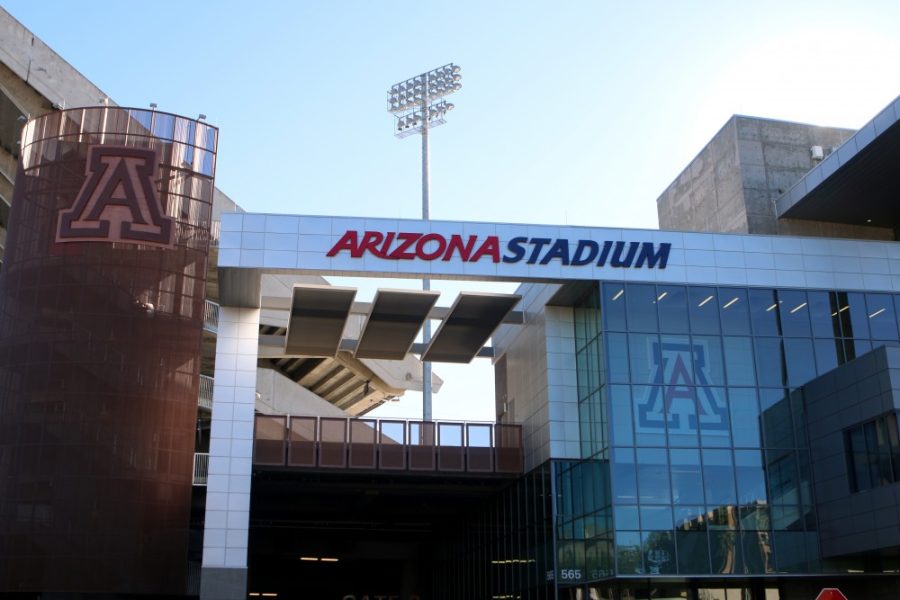For all the Wildcat fans still lamenting the Arizona State versus Arizona game, students can take solace in knowing that UA has brought home at least one Pac-12 Conference win against ASU this year. The UA beat ASU in the 2015 Pac-12 Zero Waste Bowl, taking third place overall.
The bowl, which included all 12 schools in the Pac-12 , set out to see which school could put on the best zero-waste game of the football season. For a game to be zero-waste, waste had to be diverted from the landfills, mainly in the forms of recycling and composting.
The diversion rate measured the percentage of waste redirected away from the landfill. For example, leftover stadium food was composted and plastic water bottles were recycled instead of thrown in the trash.
The zero-waste football game at the UA was held Nov. 14 against Utah. The game was made possible by the work of the Greening the Game initiative, which is a part of UA’s Students for Sustainability.
“We had never organized anything of this magnitude and the buy-in that we had from so many students and organizations was what made our third place finish possible,” said Michael Rabbani, Students for Sustainability co-director.
A lot of preparation went into creating such a successful event, including volunteer training and coordination between Students for Sustainability and the UA Office of Sustainability.
“Cole Pihl, the project manager of Greening the Game, was able to assemble a core of volunteers for post-game clean up from organizations like Arizona Allegiance and Chain Gang,” Rabbani said. “The Office of Sustainability also did an incredible job along with Greening the Game in organizing efforts with Facilities Management and stadium employees.”
The UA’s zero-waste game achieved a 69 percent diversion rate and featured the use of compostable soft-drink cups to help lessen the landfill waste.
“Our 69 percent diversion rate was an outstanding result and is a huge stepping stone for waste reduction at future football games,” Pihl said.
The Pac-12 Zero Waste Bowl is co-sponsored by The Green Sports Alliance, which works to promote waste diversion at events like the NHL Winter Classic game.
Each school was judged on its diversion rate, partnership, participation, innovation and fan engagement. The top three schools in the Pac-12 were the University of Colorado, Boulder, the University of California, Berkeley and the UA.
“We eventually want to be the best in the Pac-12 when it comes to waste diversion,” Rabbani said. “The partnerships that we have built and the presence that we made this year have motivated us to take steps where zero waste efforts become commonplace at all Arizona Athletics events.”
Pihl echoes the sentiments of Rabbani and hopes to expand the Greening the Game initiative even further.
“I hope to see this implemented at all the football games, mainly based on more sustainable product purchasing, signage and the overall removal of trash bins,” Pihl said.
Follow Natalie Robbins on Twitter.









